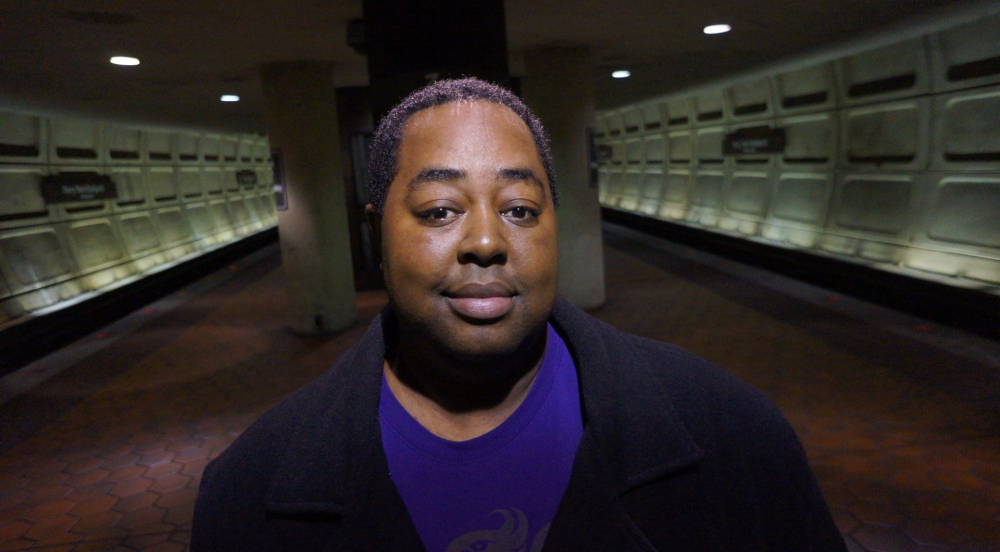In the time of the “Great Resignation,” employees across the country are having an awakening when it comes to their relationships with their work. Crucial conversations are being had about employers not valuing their employees worth and the very real impact of burn out.
If you are a person of color or member of another traditionally marginalized group, it is especially challenging to succeed while having to combat micro-aggressions, gaslighting, insufficient resources and other disadvantages.
According to the author, journalist and public speaker Alan Henry, there are three significant categories that one must consider in order to preserve their energy and still be successful in their work, which is being seen, being heard and being paid which are the tenets of his book Seen, Heard, Paid: The New Work Rules for The Marginalized. Through utilizing and harnessing these three components, individuals will have the tools to “hack their jobs” and step into their power.
Henry talked with EBONY about his journey navigating corporate spaces and what valuable insights he hopes folks gain from their work situations.
EBONY: What inspired you to help folks of color hack their jobs?
Alan Henry: I spent five to six years working at LifeHacker as a staff writer, then deputy editor and then eventually became the editor in chief. I spent a lot of that time writing about productivity tips for office workers. I was a project manager long before I turned to journalism so I was used to writing for people who worked at desks and had meetings and bosses that didn't understand what they were doing. I had a lot of experience with that. I wrote tips on productivity and focusing on tasks and avoiding having a meeting interrupted. I worked in a pretty diverse workplace with people who were very understanding so those tips were things that would work for me there. But what I learned, especially towards the end of my time at LifeHacker and during my time at other publications, was that depending on who you are, those things don’t work as well for other people.
For example, I had a white male colleague who would frequently block off time every Tuesday so that he would not attend meetings. He adamantly defended this practice and it was never questioned by others on our team about what he was doing during that time. When I tried to do that, people were defensive. They would ask, “What do you have going on? Are you sure you can't make it? Everyone else can make it on Tuesday,; why can't you make it?” I didn't get that same level of respect. I then noticed that I didn’t get this respect generally in the ways that my white colleagues, specifically my white male colleagues, did. At first, I didn't really think too much of it. But eventually, I started to realize that some of the other productivity tips that I was applying to my own life, were starting to be received differently by the same people who used them.
Before I left LifeHacker, I had an experience that ultimately prompted my departure after I was bluntly and visibly ignored by a new CEO at the time. He made appointments to meet with all the other editors in chief except me and it later became clear that my days were numbered at that point. I then went to the New York Times and it was there that I wrote a piece about the culmination of all my experiences called How to Succeed When You’re Marginalized or Discriminated Against at Work in 2019. After the feedback I received from people and conversations I had with my colleagues, I realized that there was a wider audience for these types of tips, hence this book.

It can be taxing trying to hustle in the workplace and self-advocacy can be strenuous at times. And when you realize that you are being mistreated or taken advantage of at work, it can be heartbreaking. How do you reckon with being overlooked or deemed invisible?
It is heartbreaking. This is a thing that workers of color in journalism, and in many other spaces, experience all the time. I suggest to first, remind yourself that you have interests and passions outside of the workplace. Take time to recommit to some of those things. This is something I say in the book and to everybody who will hear me—productivity isn't about just getting more stuff done to do more things. It's about getting the important things done so you can spend more time on the things that are truly important to you. So yes, get your work done so you can go spend time with your family or you can work on the passion project that you have going on the side or so you can follow your dreams or write a book.
I’ve also had to remind myself that all of these tools that I had in my toolbox to help me do good work are great. But I have to remember that they're in service to others. Ask yourself—what makes you tick? What makes you get out of bed in the morning?
Lastly, if you're in a situation where your work is being overlooked, you're being forgotten, you're being marginalized, you're being kept out of meetings and things like that, at the end of the day, you'd have to know that it's not on you to fix the systemic issues that are in this workplace or in broader society. Because of that, you need to take your skills and go someplace that will respect you. Trust me, there are places that will respect you. They may be hard to find but you just have to do it. You have to believe in those skills that you have because a lot of these workplaces will do all the extra work to make sure that you don't feel like you're worth the space that you take up. And that's not true.
How have you been able to also apply these same tenets—being seen, being heard, and getting paid—outside of confined, structured corporate workplaces and into everyday situations?
No matter what we engage in, especially as Black folks, we have social baggage that we carry with us to every interaction, right? And it's not baggage that we choose to carry but it's the interpretations and prejudices that other people have of us. They make an assumption about us and our skills, our value and our worth, from the minute they lay eyes on us. For some people, that can be neutral to good and for arguably a large portion of the American population, that's neutral to bad.
So, it’s important to remember that social baggage is there and there's very little you can do to dismantle it. But what you can do is seek out community and people who are like you and resonate with the experiences that you go through.
Another thing I like to recommend to people, not just for work but for their own mental health, is to keep some kind of work diary. Keeping a track record of who cuts you off at work today? Who do you like working with? What are the things you're working on? What are your small wins? What did you do that made you feel good this week? What did you not get to do that you wish you could? Even keeping track of the things that frustrated you and wish you could have done this better. This is helpful in case you need documentation on the job but also to see what you’ve overcome.













